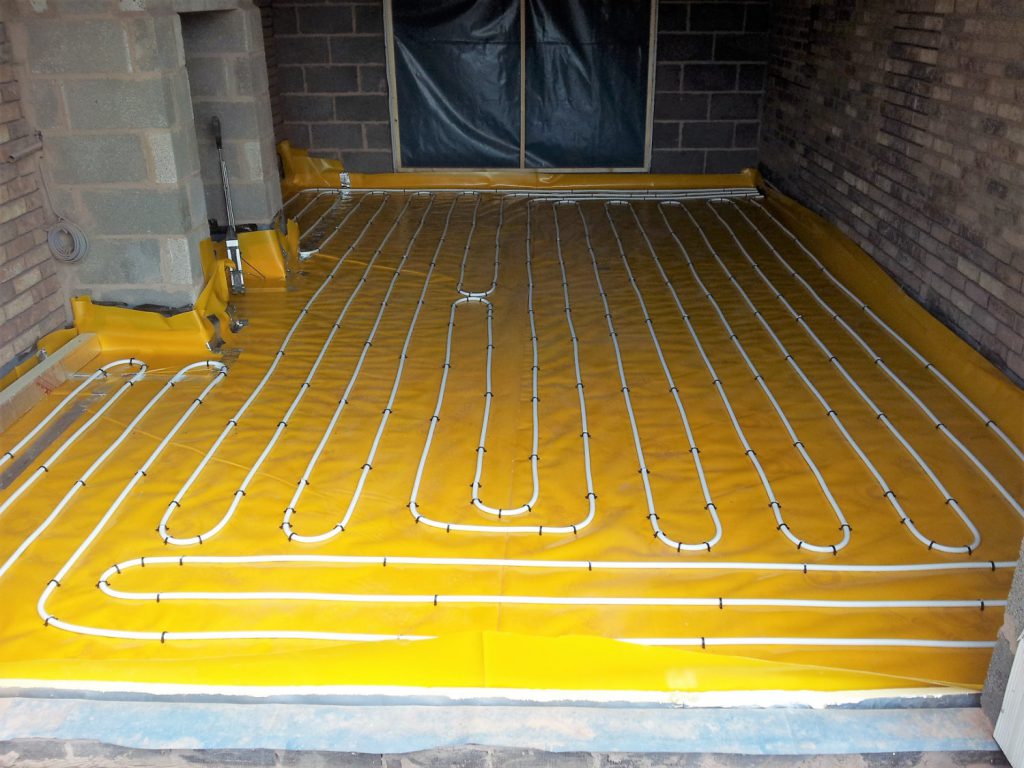Waking up in the morning and taking your first step out of bed can be a pleasurable experience. That is if your feet are not practically frozen in the process. Indeed, cold feet are something you can’t run away from when your floors are not heated.
Therefore, most people install or would wish to install underfloor heating. But what about if you have combi boilers? Can they coexist with one another?
The short answer is yes, your combi boiler can work with underfloor heating if critical adjustments are made. The installation procedure must be performed meticulously and without error. We explain why.
How to Use Combi Boilers With Underfloor Heating?
There are two types of underfloor heating: wet and dry. The dry one has electrical wires that you need to install under the floor. The wiring system will depend on the space and required wattage. Insulation is also provided beneath the cables to guarantee that the heat troubles up instead of down.
On the other hand, the wet underfloor heating will require hot water heated through the boiler. Think of a radiator but a lot closer together. Also, unlike the dry underfloor heating, its wet counterpart will need a much larger space.
Here is where a combi boiler takes its role in activating the wet underfloor heating.
A combi boiler contains two heat exchangers. The first one is for water heating for potable domestic use. And the second one is for space heating which naturally covers the underfloor heating. Most combi boilers used for space heating have exchangers made of aluminum or stainless steel.
Nonetheless, for standard underfloor heating, any functional boilers often fit well with the former’s function. However, careful planning and several changes or adjustments must be made to ensure that the boiler distributes the heated water accordingly whenever you’re getting a boiler for a new house or a boiler replacement for your existing unit.
What Might Happen if the Underfloor Heating Installation and Combi Boiler Are Improperly Installed?
Some homeowners and builders deem combi boilers as too complex for underfloor heating. They regard the system as high maintenance and have a higher likelihood of leaks. Nonetheless, such complexity can also be addressed by solutions.
Naturally, if you have radiators that use the same boiler as that of underfloor heating, it is best to let a credible heating engineer install a two-port valve.

This valve is designed to control water flow within the central heating system. It prevents simultaneous distribution of heated water to maximized efficiency and targets the optimum temperature required for underfloor heating.
Conclusion
When in doubt, always heed a professional’s opinion. Underfloor heating has plenty of benefits that include efficient use of energy, comfort, and safety, as well as larger space for the household.
If you already have a combi boiler free boiler scheme, then it can match well with your wet underfloor heating only if you connect the equipment the right way.
And if you have been considering transferring to a combi boiler, you may be wondering exactly how much is a new boiler? These can range in price depending on the model, size and efficiency. You can find the right size of boiler for you by considering your property’s heat requirements and the number of radiators you have. For example, a small one-bedroom flat may need a different type of boiler than a large four-bedroom house. Installing a new boiler can be expensive, but it also has potential savings in terms of lower energy bills. If you are replacing an old, inefficient model, your energy bills will likely be lower after the installation.
.





